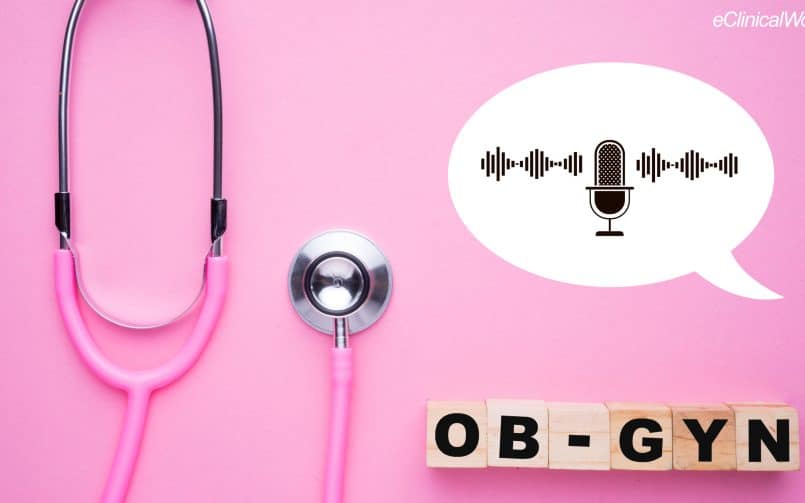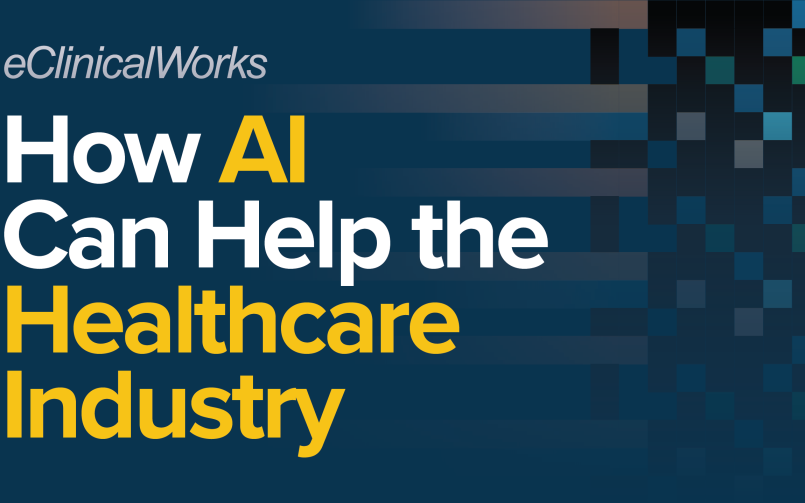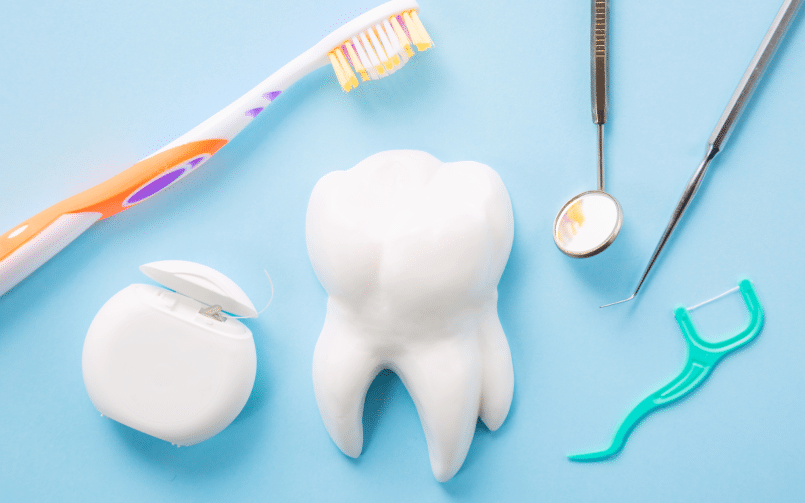Sunoh.ai

- 11 December, 2024
- blog
AI and the Age of Intelligence Has Arrived
Researchers, doctors, and the media often speak about breakthroughs in healthcare, from new diets and new medications to stamping out smoking and finding a cure for cancer. One key advancement is the rapid development of healthcare tools powered by artificial intelligence.
Read Continue
- 27 November, 2024
- blog
eClinicalWorks: The One-Stop Solution for Cutting-Edge AI Tools
Artificial Intelligence (AI) is no longer a futuristic concept, but is becoming an integral part of modern healthcare. It is a dynamic, active player transforming healthcare.
Read Continue
- 10 October, 2024
- blog
Sunoh AI Medical Scribe is Transforming Documentation in Women’s Specialty Clinic
Women's specialty healthcare clinics provide comprehensive care across various stages of a woman's life—from adolescence to menopause. These clinics offer a broad range of services, including obstetrics and gynecology, infertility treatments, menopause care, preventive care, counseling services, lifestyle management, and aesthetic services.
Read Continue
- 4 October, 2024
- blog
Sunoh.ai – A New Horizon in Pain Management
Each patient's physical condition and pain threshold are unique. With a detailed physical assessment—AKA ‘stethoscope time’— healthcare providers can determine the patient’s condition and develop a treatment plan.
Read Continue
- 27 September, 2024
- blog
Sunoh.ai – The Ultimate AI Scribe Solution for your Healthcare Practice
The AI medical scribe solution integrated within eClinicalWorks EHR is transforming clinical documentation Provider burnout is a growing healthcare crisis. According to a review by the American Medical Association, it affects 63% of providers. One of the leading causes of burnout is the administrative burden that comes with clinical documentation.
Read Continue
- 1 August, 2024
- blog
eCW Users Excited to Implement AI at Their Practices
The eClinicalWorks® 202 I 4 Health Center Summit was a fusion of anticipation, inspiration, and technological revelation. Attendees expressed their excitement about the prospects of implementing eClinicalWorks (eCW) AI technology at their healthcare practices. Last year, eCW introduced a series of groundbreaking AI functionalities integrated within the multidimensional V12 EHR system to streamline workflows, enhance office efficiency, and improve patient satisfaction. Even more, AI technology is said to relieve physicians from administrative burdens. Some of the attendees shared their experiences of how AI technology has turned up the efficiency in their clinical operations:
Read Continue
- 30 July, 2024
- blog
How AI Can Help the Healthcare Industry
eCW Poll Identifies Key Challenges and Solutions Whatever their specialty, however large their practice, and regardless of how diverse their patient populations may be, America's healthcare professionals share a common challenge — administrative tasks. Year after year, case studies, surveys, polls, and anecdotal evidence agree that grappling with office administration — everything from check-in and insurance authorizes to care documentation, fax boxes, and gathering patient records — is among the biggest challenges in healthcare. All that administrative work generates an ever-growing flood of data. And while much of it is essential to providing prompt, quality care to patients, it is also very easy to lose one's way amid such work. That can leave doctors and staff feeling disconnected — both from the patients they care for and from their own families and personal lives — as their administrative work consumes their evenings, cutting into the "pajama time" we all need to rest, relax, and recharge. Our May 2024 poll of more than 120 healthcare professionals confirms these findings. Indeed, 41 percent of respondents told us they are spending four or more hours every day on documentation alone. That's like spending half your workday simply recording what you did during the other half. But remember that, in medicine, there are few timeouts. Patients keep coming, data keeps flowing in, and the time for completing documentation and other administrative work often extends beyond the hour when the office closes — and can run well into the evening.
Read Continue
- 26 July, 2024
- blog
How to Maximize Efficiency of an AI-Powered Medical Scribe
The healthcare industry has always been a frontrunner in embracing innovations, and artificial intelligence (AI) is no exception. A striking example is the growing use of AI medical scribes like Sunoh.ai, designed to automate clinical documentation and reduce the burden of administrative tasks. According to research, AI scribe saves doctors an hour at the keyboard every day, thereby allowing healthcare providers more time to connect with their patients. Remember, technology is a tool, and effective communication is the secret sauce that will help healthcare professionals get the best out of AI medical scribes. This will not only enhance productivity but also enhance patient satisfaction and overall healthcare delivery. Here are some insightful communication tips to optimize your use of AI medical scribes:
Read Continue
- 6 June, 2024
- blog
Dental Practices Keep Brushing Up on Technology
How Sunoh.ai medical scribe can advance care Ask someone to list major medical advances, and they are likely to list such things as the eradication of polio, the development of new drugs, the mapping of the human genome, or breakthroughs that are helping improve cancer survival rates. It’s easy to forget about dental care. But good oral health, so often overlooked, remains a vital part of leading a full and healthy life. The list of advances in dentistry is impressive, from the use of drugs to numb pain to more precise and less invasive ways to detect and treat dental decay. Digital radiography has reduced patients’ exposure to X-rays. Silver amalgams have largely been replaced with safer, natural-looking materials. But there’s another way that today’s dental providers can improve their practices and better serve patients—by adopting an AI medical scribe known as Sunoh.ai. eClinicalWorks recently announced that it is integrating Sunoh.ai into dental clinics across the country.
Read Continue
- 4 June, 2024
- blog
Physicians Have Limits — Healthcare IT Can Help
Physicians Have Limits — Healthcare IT Can Help Every medical practice is more or less different from every other, whether by virtue of size, location, specialty, or emphasis. But every medical practice, from the smallest rural health center to the largest urban hospital system, shares one economic reality — resources are always limited. Many providers work long hours to serve their patients, often completing their daily documentation in the evening from home. But clocks, calendars, and human endurance sets limits. There are only 24 hours in a day and seven days in a week. Add in a shortage of physicians and ever-increasing demands by patients, and it is not surprising that surveys consistently show that about two-thirds of U.S. providers report at least one symptom of burnout.
Read Continue
- 16 May, 2024
- blog
A Revolutionary Approach to Enhance Clinical Workflows
At some point in the journey of any medical practice, providers and staff encounter the challenge of managing success. With new patients, they need new ways to improve efficiency, speed up workflows, and capture revenue. But how practices think about their healthcare IT can spell the difference between being overwhelmed and successfully managing growth. A traditional approach might work One approach is to simply add new tools for everything from telehealth and Population Health to improved interoperability and billing. That may work, but busy practices often lack the time needed for training. The challenges can be so many — and seem so overwhelming — that practices find themselves underutilizing many of the solutions they are paying for.
Read Continue
- 7 May, 2024
- blog
AI-Powered Medical Scribe Integration within the EHR is Revolutionizing Clinical Documentation
According to research conducted by 3M and the American Hospital Association, clinical documentation is critical in providing and coordinating care. Their study found that physicians who lack sufficient time for documentation are nearly three times as likely to report symptoms of burnout. That’s why reducing time spent on documentation is essential. This AMA report demonstrates how an AI scribe saves doctors an hour a day from the keyboard. Integrating AI technology into the EHR eases the administrative workload, reduces burnout, increases provider satisfaction, and improves work-life balance. AI functionalities like medical AI scribes allow for more focused, distraction-free patient care. Last year, eClinicalWorks introduced a series of AI functionalities, including Sunoh.ai. AI-powered medical scribe solutions integrated into the EHR, like Sunoh, redefine patient-provider interactions and increase healthcare efficiency. In fact, Sunoh is set to become a go-to technology in modern healthcare. Captures Unstructured Data AI scribe solutions use natural language processing (NLP) technology to understand context and analyze unstructured data to generate real-time documentation. Sunoh.ai uses AI and ambient listening technology to pick up a patient and provider conversation and create a transcript that distinguishes between their voices. The provider can review and import relevant data to complete the clinical documentation.
Read Continue